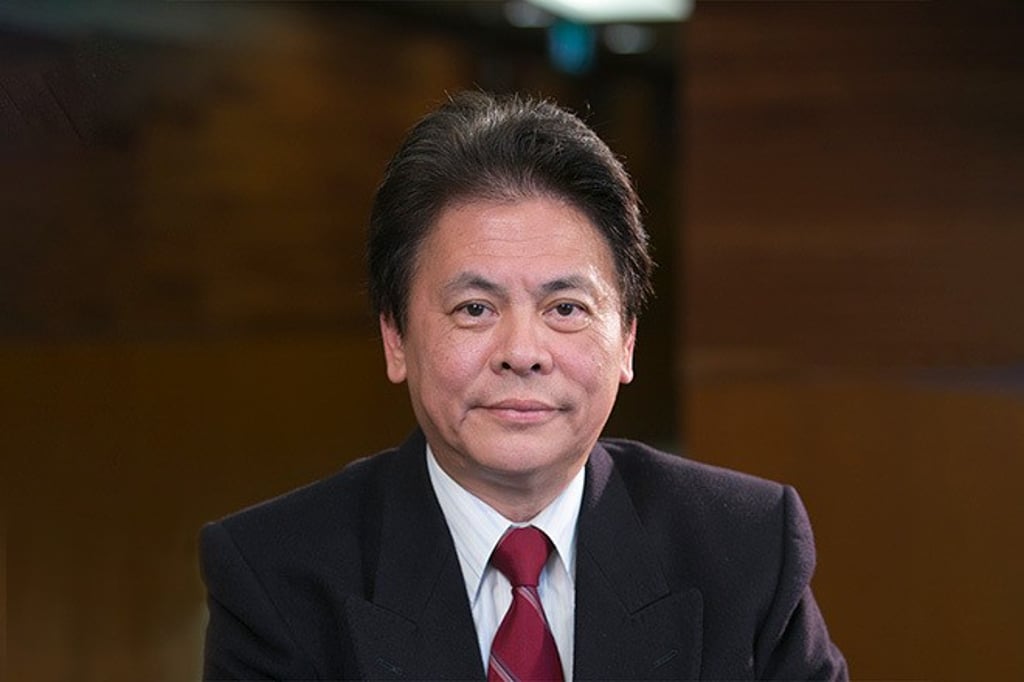Fintech the focus for PolyU doctorate

[Sponsored Article]
If Hong Kong is to retain its position as a global financial centre, it is essential for senior executives, who will help to shape the future, to have an in-depth understanding of the full scope and possibilities offered by the digital world.
For that reason, The Hong Kong Polytechnic University (PolyU) introduced a pioneering Doctor of FinTech (DFinTech) programme in 2019, combining taught courses and a research thesis, to ensure students can keep pace with all the latest developments and apply key lessons to improve the operational efficiency and competitiveness of their respective organisations.
“A few years ago, we realised the wave of digital transformation was going to disrupt the whole finance sector and sensed Hong Kong was falling behind,” says Professor Wilson Tong, programme director of the three-year, part-time DFinTech. “There was a clear need for more senior-level research and training to ensure the city was well prepared for the changes ahead.”

When initially planning the basic structure and content, PolyU’s highly regarded DBA (Doctor of Business Administration) served as a model. Therefore, students begin by taking a range of credit-bearing core courses and electives, either online or in class, before finalising their thesis proposal and then focusing on research and writing in the second half of the programme.
Naturally, there is a strong interdisciplinary element, drawing on the expertise of faculty members from business, construction and environment and engineering and external practitioners who variously specialise in everything from finance and banking to computing, big data, e-commerce and smart cities.
“The digital world is changing all the time, so we require instructors to update their syllabus every year,” Tong says. “The material on areas like Bitcoin and other digital currencies, NFTs and the metaverse has to be cutting edge. But our thesis supervisors are also active researchers themselves, so they are in touch with the most up-to-date developments in the financial ecosystem.”
When it comes to choosing a research topic, students are generally encouraged to consider first something that relates to their own job or area of the industry. This will then be refined - either broadened or narrowed - in discussion with supervisors before settling on a specific subject which will also have wider relevance and genuine academic merit.
“Students usually bring issues or experiences from their day-to-day work which they want to research further, but if they have difficulties their supervisors are always ready to come up with suggestions,” Tong says. “From early on, though, we push them to start thinking about topics and, in class, there are opportunities to present initial ideas and develop them in a structured way.”
He adds that, while digital technology is still a relatively new force, its impact on finance, management, marketing and much else can only continue to grow. Therefore, the programme is now attracting a diverse mix of bankers, investment managers, accountants, IT executives, entrepreneurs, and those in more traditional industries.
“They see the challenge and the need to equip themselves for the future,” Tong says. “And what they learn about strategy and transformation can immediately add value for their companies.”

Current student Winson Wong, who began the DFinTech in January last year, would certainly endorse that view. One of the prime reasons he originally applied for the programme was the feeling that, as a finance professional, he simply didn’t know enough about the high-speed changes of technology applications in Fintech and its potential impacts happening all around him. And he couldn’t afford to let the world pass him by.
Besides that, he also liked the part-time mode, which allows him to balance work and study, the cross-faculty approach, and the chance to collaborate and learn from peers working in other sectors, as well as from the professors.
“We cover the tech and finance sides, but also data analytics and smart cities,” says Wong, the Macau-based Senior Executive for a Hong-Kong-listed financial group. “I don’t have a tech background, so I’ve already learnt a lot about blockchain, IoT [the internet of things], AI for modelling, and how retailers are adapting to e-wallets, automation and making use of the enhanced data analytics now available.”
At present, Wong is leaning towards a research topic focusing on blockchain and how it could help SMEs with their financing arrangements in a more efficient way. His thinking is that, instead of mortgage lending, such enterprises could move towards invoice financing to underpin operations and expansion, with a blockchain model making it possible to gain a better understanding of customer’s business model, upstream, downstream counterparties and related financial flows.
“SMEs in Hong Kong and Macau still have difficulties in accessing finance and banking services,” Wong says. “But in future banking will be anytime, anywhere with further integration with ABCD (Artificial Intelligence, Block-chain, Cloud-Computing and Data Analytics). And as fintech infrastructure develops, there will be more cross-border integration, all of which should make it easier for SMEs to raise finance.”
Wong’s general advice for others interested in taking the DFinTech is to recognise the importance of being forward-looking and to embrace the chance to be a “scholar-leader” in one’s own industry.
“This is the digital age,” he says. “The business environment will keep changing, so a commitment to lifelong learning is vital.”